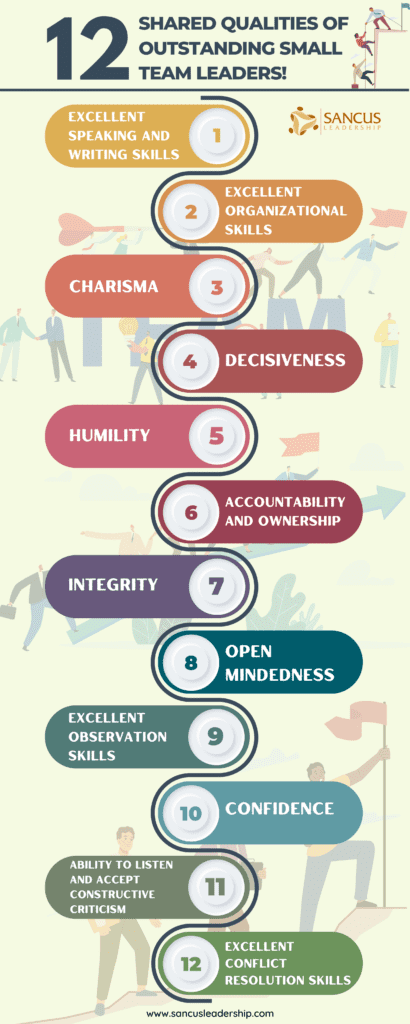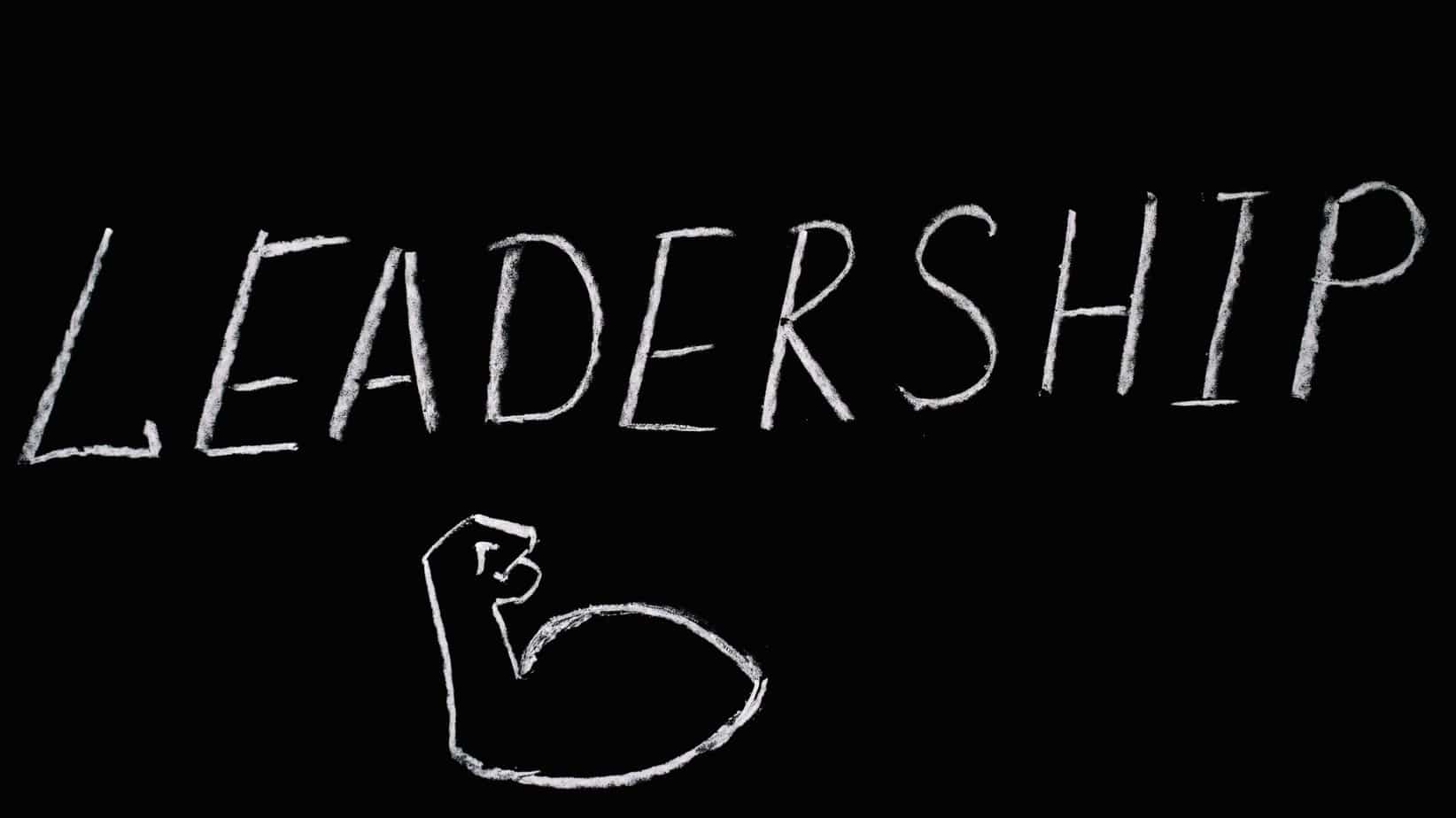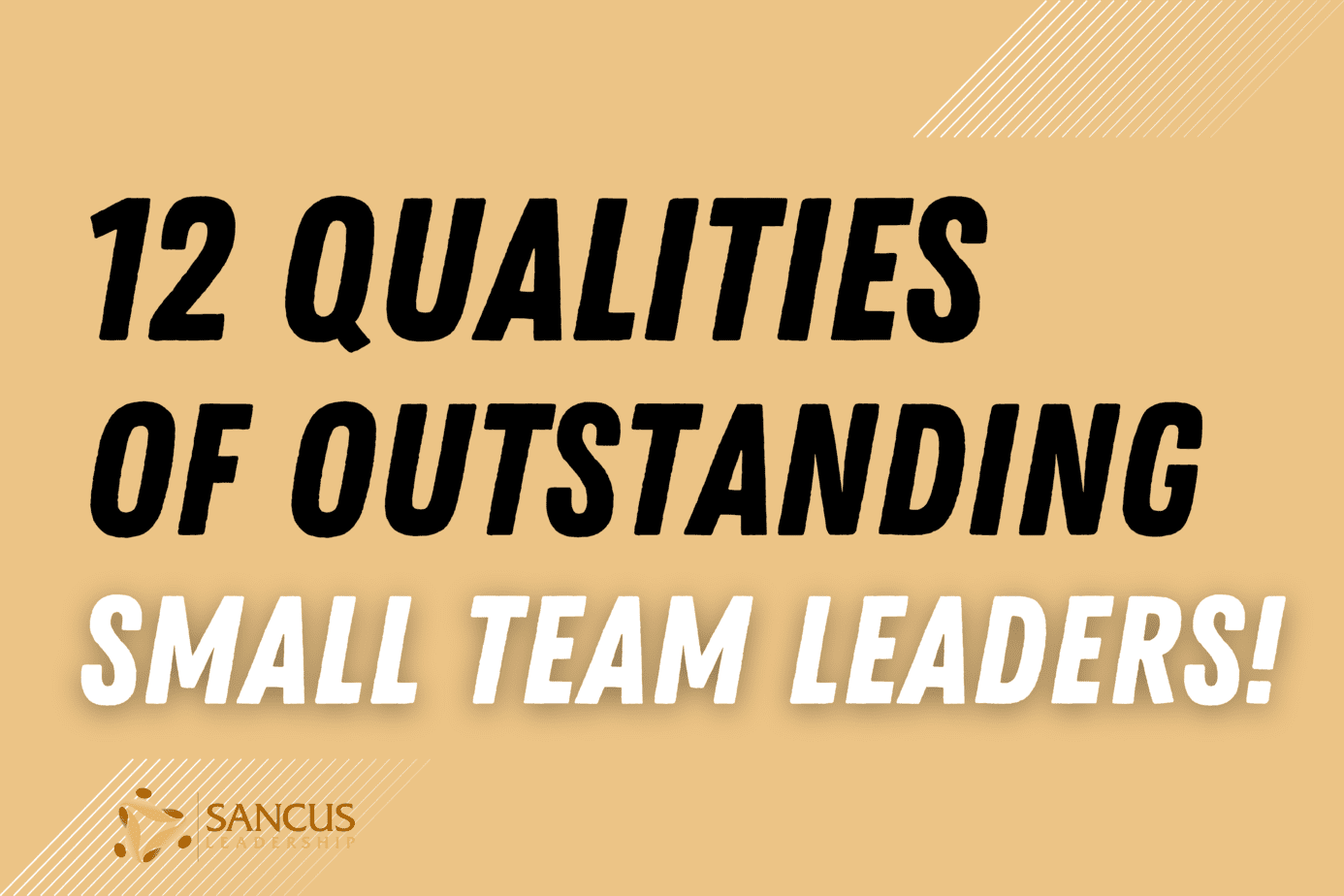Upon asking leaders, employees, and soldiers, “What do you think makes a good leader?” all gave a different answer. However, when analyzing the responses of big groups of people, I have encountered some recurring themes that revolve around a few key qualities that only a leader can bring their team to success. So, which are these qualities?
12 qualities of great team leaders include excellent communication skills, excellent organizational skills, charisma, decisiveness, humility, accountability, integrity, open-mindedness, excellent observation skills, confidence, the ability to listen and accept criticism, and excellent conflict resolution skills.
To learn more about these crucial skills and why they’re so essential for a leader to possess, make sure to keep reading below. By reading through the following sections, you won’t only get to understand why these qualities affect one’s leading and managing performance so much but also what it means to be a good leader in the first place. Without further ado, let’s dive into these quintessential leadership qualities.

1. Excellent Speaking and Writing Skills

No leader or manager can succeed without knowing how to communicate properly, which is why this is arguably one of the most essential skills mentioned on this list. A great team leader knows how to express themselves verbally and through written media, so the team members will understand precisely what is expected of them.
Or, as Jocko Willink, the author of extreme ownership, would put it, you can only lead effectively from a place of clarity. Click here to read the full article!
Think about it – most of a leader’s job revolves around communication. Whether they have to explain their idea, delegate tasks, give employees a picture of what’s expected of them, or express gratitude and criticism, leaders must know how to communicate as efficiently as possible.
For example, suppose a leader uses ambiguous words when briefing on a plan. In that case, team members may interpret how the plan will be executed differently.
Success would be doomed from the get-go, no matter how knowledgeable or hard-working the team members are. The same goes for every instance mentioned above. Think about how differently a piece of criticism can be received when it’s delivered crassly, or imagine a team member not knowing what’s expected of them – that’s a recipe for disaster.
Many leaders I work with have understood the idea of giving positive feedback, But often it sounds something like this “Great job, dude.” This feedback needs to be clarified and more useful.
A much better communicator would say, “Hey Bill, the presentation you did this morning was easy to understand; you were talking at a slow pace and loud enough so even us in the back could hear.”
In this example, the leader explicitly points out what they want the employee to continue doing. This gives the leader more of the desired behavior, and the receiver of the feedback understands precisely what she did, and the audience appreciates that.
2. Excellent Organizational Skills

The nature of a leader’s job is, in itself, organizational. While team members need a rich base of technical knowledge (and skills) to succeed at their job, the leader’s whole purpose is to help each member reach their professional capacity by organizing their work and ensuring everything’s in order.
The main task of a leader is to remove obstacles so that the team can perform at its highest level.
The main task of a leader is to remove obstacles so that the team can perform at their highest level.
Similarly, a good leader should know when and how to delegate to organize the team’s work better and make it more efficient. Making sure all processes and jobs are carried out in the correct order and by the right people can be the difference between success and failure.
As a leader, you should delegate as much as you can to plan and prepare for the future, allowing you to destroy obstacles before your team even finds out about them.
My experience from 13 years as a military leader tells me that individuals on the team are totally fine with a high workload as long as they know the team leader is removing as much BS from their path as possible.
3. Charisma

Though some people I meet think that professional potential is strictly linked to our knowledge and experience, the truth of the matter is that when it comes to leading positions, there are a few personal qualities that can greatly impact our chances of succeeding.
Have you ever been inspired by a friend to do something exciting and then a few moments later realized that it was actually a really stupid idea? This is an excellent example of charisma at work.
A charismatic leader can convince you to do something without thinking about it. Still, charisma will only take the leader so far because, as we have read above, as soon as the listener starts to think (Or activate system #2, as Daniel Kahneman would say), the idea will be scrutinized and might fall apart if it doesn’t make sense.
If the idea doesn’t hold up to scrutiny, then trust between the leader and the follower will start to erode.
Since a leader needs to motivate and inspire, they need to possess, at the very least, a bit of charisma. The good news, however, is that contrary to popular belief, charisma is a skill that can be learned and mastered, just like any of the other qualities listed in this article.
One way or another, a leader needs to have it to succeed at their job. Otherwise, having team members even listen to their instructions would be difficult, while inspiring and motivating would be downright impossible.
Leading through fear and authority has proven unsuccessful, so for a team to succeed, members should respect and look up to their superiors, which is where charisma comes into play.
4. Decisiveness

Decision-making is at the forefront of a leader’s job description. For such a position to be adequately fulfilled, the person in it should be able to think on their feet and make quick yet thought-out decisions. Choosing one alternative among many by determining which one has the most excellent chance of success is difficult, even with no time constraints. In real-world applications, the situation can be even trickier.
Many leaders and managers have to make difficult decisions that affect not only the financial success of the company but also the lives of everyone involved in a matter of hours, if not minutes, and that’s no easy feat.
That’s why you can’t have an indecisive person who second-guesses their every move running a team, as they’d be unable to make the important choices that the position requires. In the same vein, the leader should be confident enough to run with their decision and properly communicate its implications to the team and even sell other members or higher-ups on it, a skill that’s also absent in those who are indecisive.
The big difference I see between successful and unsuccessful CEOs is the ability to “make it work.” once the order has been given to move in a specific direction, there is no longer time to discuss whether or not this is the correct decision. Instead, the focus is on moving effectively forward.
Once the order has been given to move in a certain direction, there is no longer time to discuss …
This isn’t to say that you shouldn’t have reoccurring checkups where you evaluate that decision.
5. Humility

Being in a leading position can really challenge one’s ego, and those who fail to stay humble and let their newfound power get to their head are bound to lose the trust of their teammates and fail at one point or another.
That’s why it’s essential for managers to stay humble and grounded and never to use the power given to them for their personal benefit or to put other team members down.
I have seen this happen far too many times when new officers graduate and their first assignment is to train the recruits. Fortunately, they have senior officers around that will quickly realign them with the (army’s values (to put it mildly).
After all, a leader’s whole purpose is to ensure that the group’s collective goals are achieved, and that can only happen if the person in charge can see beyond their nose. Moreover, humility plays a significant part in how employees view their superiors and how likely they are to put their all into following their directions.
Trust is the foundational difference between a group of people and a team!
Trust is the foundational difference between a group of people and a team!
When you are ready for your team to stop questioning your decisions and start dedicating themselves to the task, I invite you to book a free discovery call with me here! Let's see if you are a good fit for the Forging Unbreakable Trust Program!
As you can see, the effect that humility has on one’s success as a leader is multi-layered, adding to the importance of this quality in a person who takes on such a demanding role.
6. Accountability and Ownership

There is an extensive discussion in the leadership in the business arena regarding accountability versus responsibility.
Responsibility refers to task management, “who is assigned to complete a task.”
On the other hand, accountability refers to the situation after something has happened, “Whose fault is this?” is a common question.
Good leaders should know how and when to hold themselves and others accountable. Knowing who to keep accountable for a mistake is just as important as knowing how to best go about it.
Accountability doesn’t equal shaming or berating someone; quite the opposite – it means letting someone know where they went wrong and encouraging them to do better in the future.
Many leaders need to understand the importance of assuming complete responsibility and accountability for the team’s actions and results.
What many leaders fail to understand is the importance of assuming complete responsibility and accountability for all of the team’s actions and results.
In the military world, only one person is fully responsible for the team’s actions, and that person is the team leader.
Jocko Willink famously calls this extreme ownership; if you want to learn how to take extreme ownership, then I invite you to read this article: Extreme Ownership: 13 Lessons For Leaders and Managers!
This could be a principle you can incorporate into your leadership as well.
A good leader can always recognize their faults and take proper ownership. This will make them more inclined to want to bring the company’s vision to life. That’s the only way to generate respect among subordinates and upper management.
Employees feel that their missteps are treated the same exact way as those of their superiors, and employees feel that their workplace is fair, which can go a long way regarding their job satisfaction, as explored by this Swedish study.
7. Integrity

While on the topic of fairness and its impact on job satisfaction, it’s important to note that a leader should show unmatched integrity. Since the link between bosses and morally dubious decisions has practically become a running joke at this point, it’s essential for good leaders to earn their subordinates’ trust by showcasing their integrity and honesty in every step they take.
We trust leaders whose behavior we can anticipate and who we know will make decisions that benefit not only the organization but also team members.
We trust leaders whose behavior we can anticipate, and who we know will make decisions that benefit not only the organization but also team members.
Most of us don’t expect a leader to be perfect, but we do want the people in charge to be consequent and reliable. The same goes for our employee’s expectations of us.
Fairness and honesty must be showcased in every interaction with employees, as favoritism or discriminatory treatment can really take a toll on a group’s psyche and shift the dynamics needed to achieve success.
Ultimately, if team members feel like they can’t trust their leader, the group’s chances of success are doomed from the get-go.
8. Open Mindedness

Open-mindedness, flexibility, and adaptability are essential to a leader’s performance. The business world is highly dynamic, meaning that a manager will inevitably face an unexpected challenge or change at one point or another. The way they react to said change is the difference between a great and terrible leading strategy.
According to World Economic Forum, 69% of leaders will experience at least one crisis per five years. Being able to lead through a crisis is one of the main skill sets you need to have as a leader; here’s a great read if you want to know why leaders should have crisis management skills!
While decisiveness and determination, as mentioned above, are undoubtedly important, keeping an open mind and knowing when it’s time to change directions is equally as essential in a good leader’s performance.
By this point in history; it’s pretty clear that innovation and an open mind are the keys to success.
Overcoming unexpected obstacles always requires thinking out of the box, which is why a flexible school of thought is essential in a leader. After all, the most successful business people in history didn’t get to where they are by following the norm and rejecting new ideas – by this point in history; innovation and an open mind are the keys to success.
9. Excellent Observation Skills

Good observation skills often go unnoticed when discussing a leader’s most important traits. There’s such a significant importance put on one’s abilities to communicate, decide, and inspire that people often fail to mention that to do any of these things effectively, you need to know how to observe.
A person that has good observation skills goes beyond their team members’ exteriors and can dissect their inner workings, e.g., what kind of authority they respond to, how they can best understand an idea presented to them, how you can inspire them, what kind of qualities they respect in a leader, and so on.
Good observation skills don’t only strengthen the relationship between a leader and their team members but also the relationships between the team members themselves. Having some deeper insights into each employee’s personality can help a leader better organize group projects and properly divide and delegate tasks, all of which contribute to the team’s collective success.
In the Swedish army, we say “utan spaning ingen aning”. This means something like, without proper reconnaissance, you will be clueless about what to do next. Your body’s reconnaissance troops are your eyes and ears.
We must strive to observe before we can make great decisions. This also fits together perfectly with the decision-making theory called OODA, Observe, orient, decide, and act. If you want to learn more about the OODA loop, you can contact me here.
10. Confidence

Confidence is another very important skill for a leader to possess, as it ties into many of the other qualities mentioned on this list. Whether it comes to having good communication skills, charisma, decisiveness, or even humility, one needs first to be confident enough.
If you are not confident in your own ideas, how can you expect anyone else to be? And why should they?
If you are not confident in your own ideas how can you expect anyone to be? And why should they?
For example, in order to clearly and convincingly communicate the message you want to your employees, you’ll have to be very confident (though not to a fault) in what you’re saying.
Likewise, the key to a person’s charisma is their innate belief in themselves and their abilities – that’s what inspires others and makes them want to be more like you.
Moreover, in order for a person to be decisive, they need to be confident in their choices and abilities; otherwise, they’d be going back and forth on whether they could trust their intuition.
Humility comes as a consequence of being confident in their skill set; someone who largely believes they are doing a good job is more susceptible to criticism without it being detrimental to them as persons.
For a person to be able to recognize their faults and shortcomings and still believe in themselves, they need to possess a great deal of confidence.
11. Ability To Listen and Accept Constructive Criticism

While on the topic of recognizing oneself’s flaws and shortcomings, I want to touch on the importance of a leader’s ability to listen to other thoughts and ideas and accept constructive criticism.
Having the open mind, humility, and patience to listen to your team members’ input even though you have the authority to do as you please anyway, speaks a lot to a person’s ability to be a good leader who’s more concerned about the greater good than their ego.
One’s ability to accept constructive criticism directly relates to their potential to grow personally and professionally, and growth is the primary key to a leader’s success and longevity.
12. Excellent Conflict Resolution Skills

Last but certainly not least, a leader should have excellent conflict-resolution skills. Each member speaks from a unique point of view, and it’s common for two or more ideas to clash. There should be some arguments when working in a team, especially in a small team (otherwise, you probably suffer from this problem).
However, a good leader should be able to turn conflict into something meaningful that can be used to achieve collective success. So, not only is the person in charge responsible for resolving any conflict among team members amicably, but they’re also responsible for finding a way for the team to benefit from opposing ideas.
You know you have come far as a leader when your team sees conflict not only as something that cannot be avoided but as something that is necessary! Although you must remember the vital premise, conflict needs to be constructive and respectful.
You know you have come far as a leader when your team sees conflict not only as something that cannot be avoided but as something that is necessary!
| Qualities | Description |
| 1. Excellent Speaking and Writing Skills | A great team leader should know how to express themselves verbally and through written media, so the team members will understand precisely what is expected of them. |
| 2. Excellent Organizational Skills | A leader should organize their work and ensure everything’s in order. Delegation is key to planning and preparing for the future, allowing you to destroy obstacles before your team even finds out about them. |
| 3. Charisma | A leader needs to motivate and inspire, and possessing charisma can help. Charisma is a skill that can be learned and mastered. |
| 4. Decisiveness | A leader should be able to think on their feet and make quick yet thought-out decisions. Choosing one alternative among many by determining which one has the most excellent chance of success is difficult, even with no time constraints. |
| 5. Humility | Being in a leading position can challenge one’s ego, and those who fail to stay humble and let their newfound power get to their head are bound to lose the trust of their teammates. |
| 6. Accountability and Ownership | Leaders should hold themselves and others accountable and assume complete responsibility for the team’s actions and results, encouraging team members to do better in the future. |
| 7. Integrity | A leader should showcase their integrity and honesty in every step they take. They must make decisions that benefit not only the organization but also team members. |
| 8. Open Mindedness | Open-mindedness, flexibility, and adaptability are essential to a leader’s performance. The business world is highly dynamic, meaning that a manager will inevitably face an unexpected challenge or change at one point or another. |
| 9. Excellent Observation Skills | Good observation skills are often unnoticed when discussing a leader’s most important traits. A person that has good observation skills can dissect their team members’ inner workings. |
| 10. Confidence | Confidence is another very important skill for a leader to possess, as it ties into many of the other qualities mentioned on this list. |
| 11. Ability To Listen and Accept Constructive Criticism | It shows that the leader is more concerned about the greater good than their ego and is willing to learn and grow personally and professionally. Growth is essential for a leader’s success and longevity. |
| 12. Excellent Conflict Resolution Skills | A good leader should have excellent conflict resolution skills to turn conflicts into something meaningful for the team’s collective success. They should be able to resolve conflicts among team members amicably and find a way for the team to benefit from opposing ideas. |
Here’s a quick video of Jordan Peterson talking about the important qualities of a good leader.



